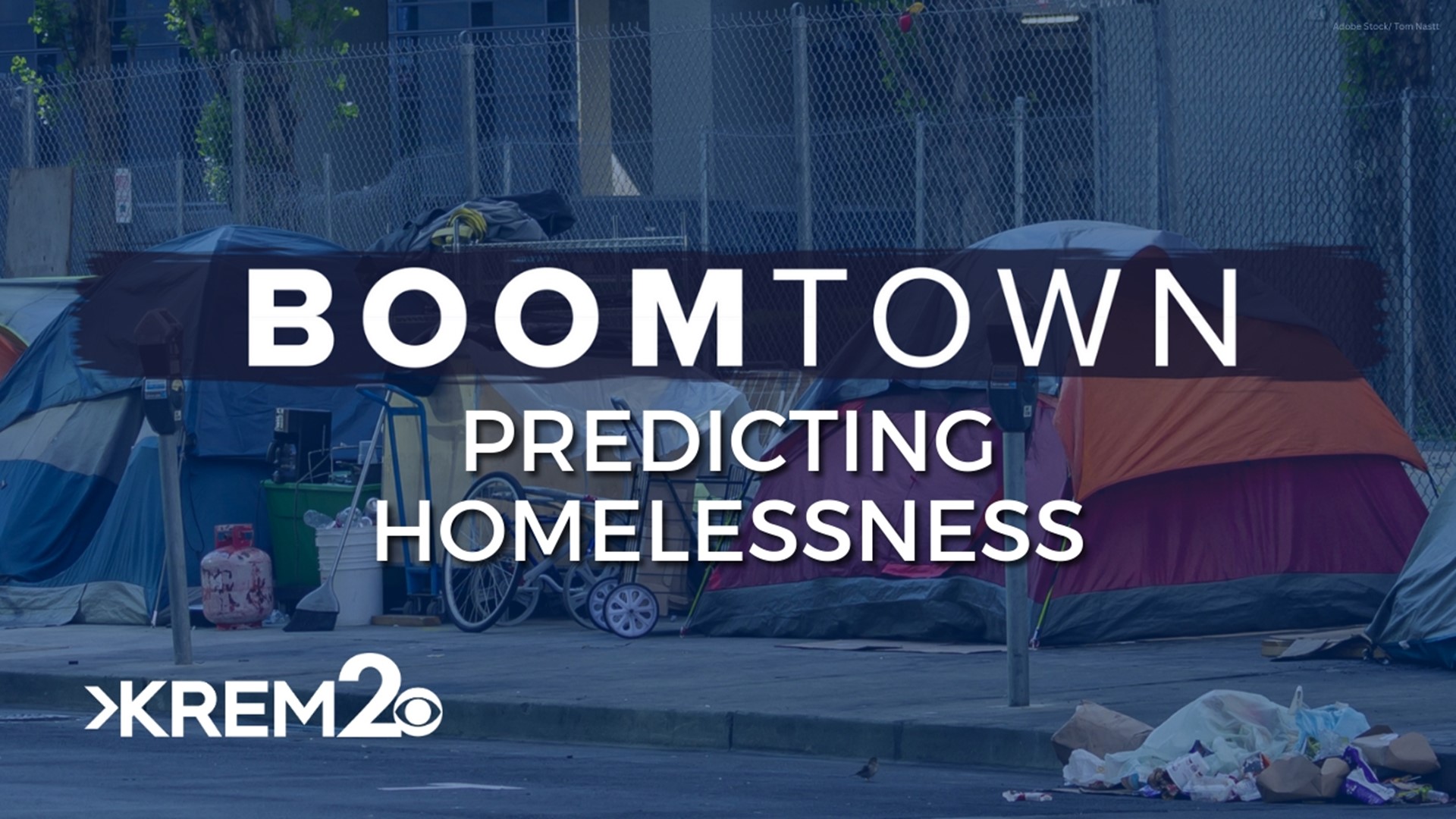SPOKANE COUNTY, Wash. — As Spokane's population has grown, so has the number of people experiencing homelessness. From 2009 to 2022, Spokane's general population grew 18%, whereas the homeless population increased by 43%.
A new wave of research from Eastern Washington University could change the way the city approaches the housing crisis in the region. Data Scientist Colin Middleton dedicated his masters thesis to researching how to prevent homelessness.
"The idea is to identify people who might become homeless, or might experience homelessness in the future, and reach out and assist them before they experience homelessness," Middleton said.
He created a statistical model that identifies a person's risk of experiencing homelessness in the next year, based on information from the utility Avista. The information included how many missed payments or overdue bills a person has, the number of service addresses linked to an individual, and more.
All the research is conducted in a way that customers' personal information is anonymous.
Middleton compared that historical data to information about which of those individuals became homeless to create the prediction model. It worked with 65% accuracy. Middleton purposefully left the window for error large, so assistance programs can then look further into who needs help.
The goal of the program would be to provide resources to people at risk for homelessness, in order to help them maintain their housing. Programs based on this research have the potential to save taxpayer dollars.
"They are cheaper than allowing people to experience homelessness and then require higher cost services such as shelters or ER visits, things like that," Middleton said.
This research is relatively new. The California Policy Lab in Los Angeles is the first organization to implement a program based on similar research. The LA program has been providing services to people flagged as at-risk for a year and a half.
Executive Director of California Policy Lab Janey Rountree says so far, the results have been promising.
"Many of the clients who are enrolled in the program have retained their housing 90%. And we would have predicted 30 to 40% would have become homeless in that period," Rountree said.
Spokane is not in the implementation phase of the research. The current research is from historical data. Next, Spokane would need to create a real-time system for assigning risk predictions based on current Avista information.
"If you do it right ... you save people from the trauma that they often experience with losing their homes, and living on the streets," Middleton said.
California Policy Lab says this type of research should be used in conjunction with current homeless outreach programs, not as a replacement. It is intended to reach people who otherwise wouldn't have likely accessed the resources.
DOWNLOAD THE KREM SMARTPHONE APP
DOWNLOAD FOR IPHONE HERE | DOWNLOAD FOR ANDROID HERE
HOW TO ADD THE KREM+ APP TO YOUR STREAMING DEVICE
ROKU: add the channel from the ROKU store or by searching for KREM in the Channel Store.
Fire TV: search for "KREM" to find the free app to add to your account. Another option for Fire TV is to have the app delivered directly to your Fire TV through Amazon.
To report a typo or grammatical error, please email webspokane@krem.com.

